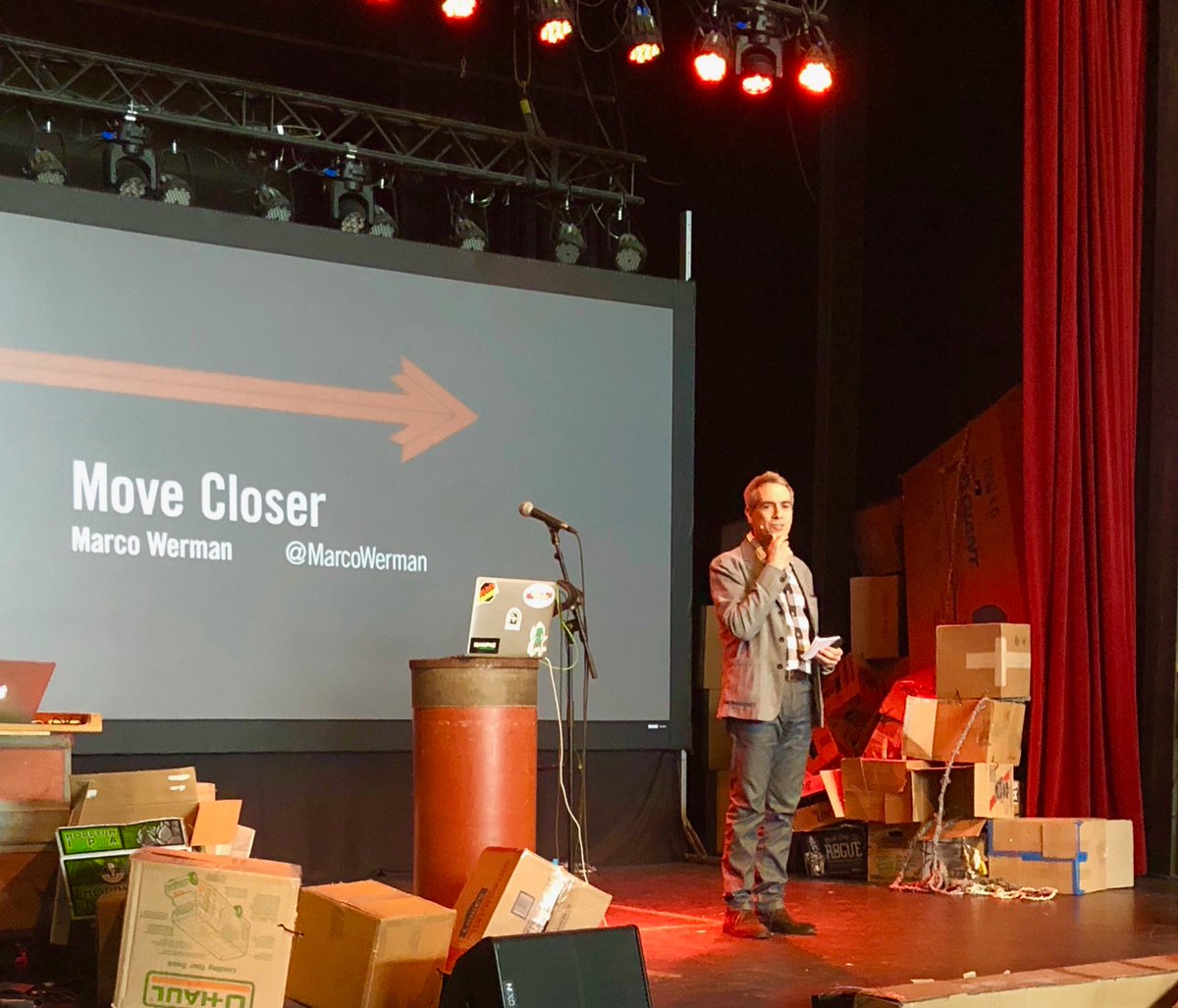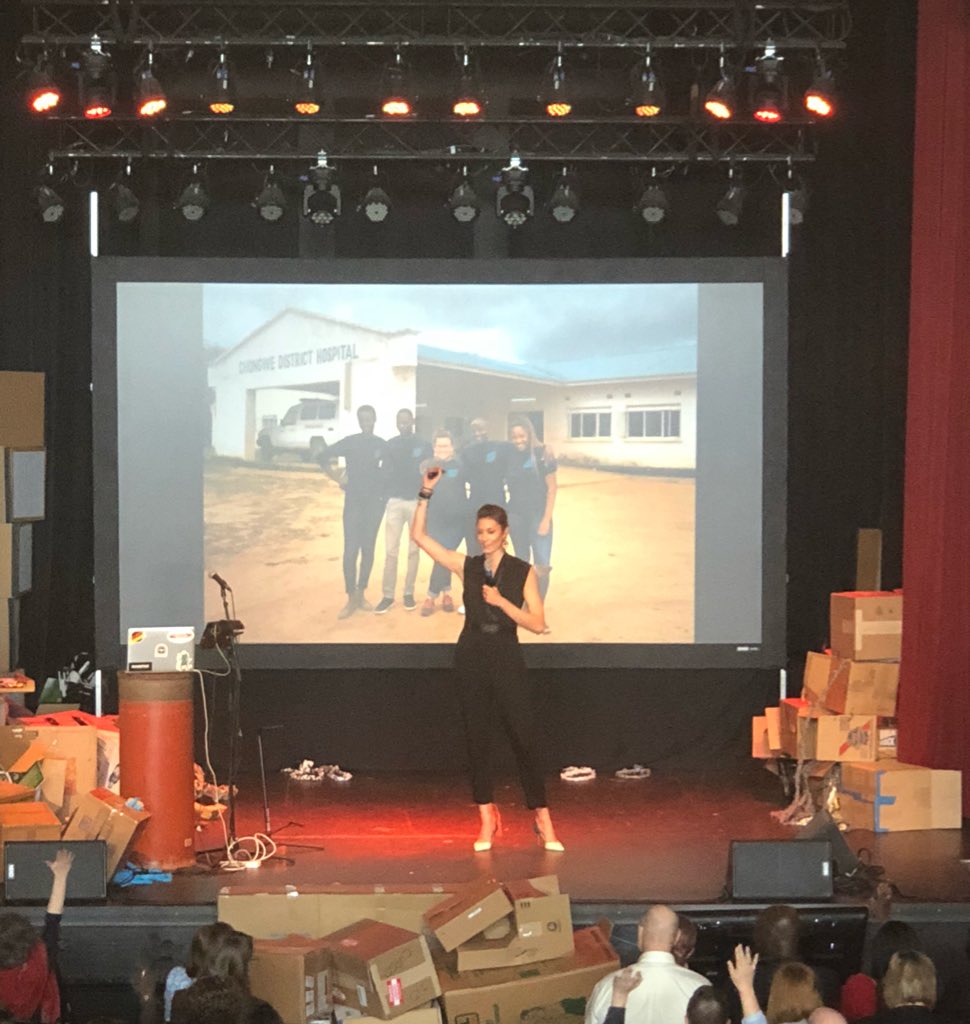Stories and Silos: Advocacy Lessons from SwitchPoint to Take to the World Health Assembly
By Temi Omilabu, IntraHealth International and Frontline Health Workers Coalition
At IntraHealth International and the Frontline Health Workers Coalition, elevating the voices of health workers around the globe and giving them the reins to tell their stories is the lifeblood of our mission to advocate for greater and more strategic investment in their work.
After all, health workers on the frontlines of care know the ins and outs of our health systems best.
Effective storytelling is far from a plug and place, however. Among a bevy of amazing talks like that of Rosaura de Jesus late last month at SwitchPoint – IntraHealth’s annual humanitarian innovation, global health, and technology conference in Saxapahaw, North Carolina – were two talks that provide great insight for advocates heading this next week to the World Health Assembly in Geneva.

Switchpoint 2018 Conference. Courtesy IntraHealth International.
Marco Werman: Pass the mic
Marco Werman, an Emmy-award winner and the host and editor of Public Radio International’s popular radio program The World, was the first American radio and TV journalist to travel to Libya in the wake of Muammar al-Gaddafi’s decision to eliminate Libya’s weapons of mass destruction program. His lesson from that experience – the more he “passed the mic,” the more authentic and powerful the stories became.
In 2006, his Emmy-winning documentary “Libya: Out of the Shadow,” told a story about the total solar eclipse that brought tourists from all over the world to Libya for the first time in a long time, and how the former pariah emerged from isolation.

Marco Werman opens the conference with a message to “move closer and pass the mic.” Courtesy IntraHealth International.
Werman said that in order to tell an honest story, we must engage in “closeness” to those whose story we’re trying to capture. He didn’t mean physical closeness, though. Rather, the more involved he was with the people he documented, the more earnest his story was. Passing the mic means giving people the power to share their own stories and control the conversation, rather than reserving power for those who may already have it.
Many of us working in global health and development feel passionately about the people we serve. We travel to remote locations and come back with notebooks full of other people’s stories. With good intentions, we want to tell the world, “Look at what’s happening outside of our scope; here’s why you should care; here’s why you should fund our development projects.” But, passing the mic is more important than telling these stories on our own. If we have empathy for those we engage with, we should strive to give them a platform to tell their stories, their own way.
Jess Mack: Words have power – jargon, not so much

Jess Mack during her session, “OMG, UHC.” Courtesy IntraHealth International.
Just as we must share the power that comes with storytelling, in order to humanize the work we do, Jess Mack, senior director of advocacy and communications at Global Health Corps, reminded us that our words have power, and when we turn those words into an alphabet soup of jargon and acronyms, we relinquish some of that power.
Social media advocates for global health often craft calls to action that look something like this:
In order to achieve #UHC and #GHSecurity, we must achieve #SDG3, reduce #NCDs, support #FP2020, eliminate #GBV, and support #MNCH initiatives.
But, what kind of call to action leaves us wondering what it even means?
Mack’s SwitchPoint talk “OMG, UHC” reminded us that sometimes it’s OK to reject acronyms and simply say what we mean. Let’s not allow the meaning of our words to be lost in our niche jargon. Let’s start by saying that health is a human right and go from there. Let’s speak that belief into existence.
As advocates and the world’s health ministers head to Geneva next week for the World Health Assembly, I hope they take Werman and Mack’s combined wisdom to heart – to effectively drive sustained action for global health, we need to make sure we’re passing the mic – especially to health workers and patients on the frontlines of care – and giving our words true meaning.
